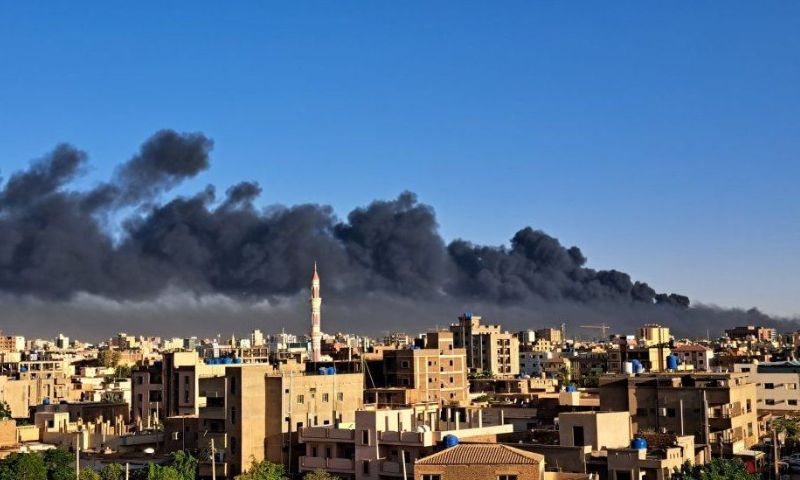KHARTOUM: Battles continue to rage in Sudan’s war-torn capital of Khartoum, leaving residents of an island in the Nile “under siege” and facing severe shortages, witnesses reported on Tuesday. The clashes have persisted for eight weeks, pitting army chief Abdel Fattah al-Burhan against his former deputy Mohamed Hamdan Daglo, who commands the powerful paramilitary Rapid Support Forces (RSF).
Despite several broken ceasefires, the fighting has brought little respite to the city’s residents. Witnesses once again heard the “sound of heavy artillery fire” in northern Khartoum, while clashes with various weapons were reported in south Khartoum, causing explosions that shook buildings.
In the city center, the island of Tuti, located at the confluence of the White Nile and Blue Nile rivers, is now “under total siege” by RSF forces, according to resident Mohammed Youssef. The paramilitaries have blocked the only bridge to the island and prevented residents from accessing other parts of the capital by boat. The situation has resulted in a desperate shortage of supplies, with residents unable to seek medical treatment or acquire essential provisions.
Since the conflict began on April 15, the death toll has surpassed 1,800 people, as reported by the Armed Conflict Location and Event Data Project. The United Nations estimates that over 1.5 million people have been displaced within Sudan and across its borders.
Deteriorating Situation in Khartoum and Darfur
The situation in Khartoum and the western region of Darfur, which have been heavily impacted by the fighting, is rapidly deteriorating. The International Federation of Red Cross and Red Crescent Societies (IFRC) warned of a massive humanitarian crisis, emphasizing the collapsing economy and healthcare system.
With the upcoming rainy season in June, access to parts of the country may become impossible, heightening the risk of malaria, cholera, and water-borne diseases. Over 25 million people, more than half of Sudan’s population, now require aid and protection.
More than 425,000 individuals have fled to neighboring countries, including Chad and Egypt, seeking refuge from the violence. The IFRC has urgently called for a significant injection of funds to support those affected by the conflict. The United Nations has also appealed for financing, as the fighting shows no signs of abating.
Last week, Washington imposed sanctions on the two warring generals, holding both sides responsible for the “appalling bloodshed” after a truce brokered by the US and Saudi Arabia collapsed, leading the army to withdraw from ceasefire talks altogether.























